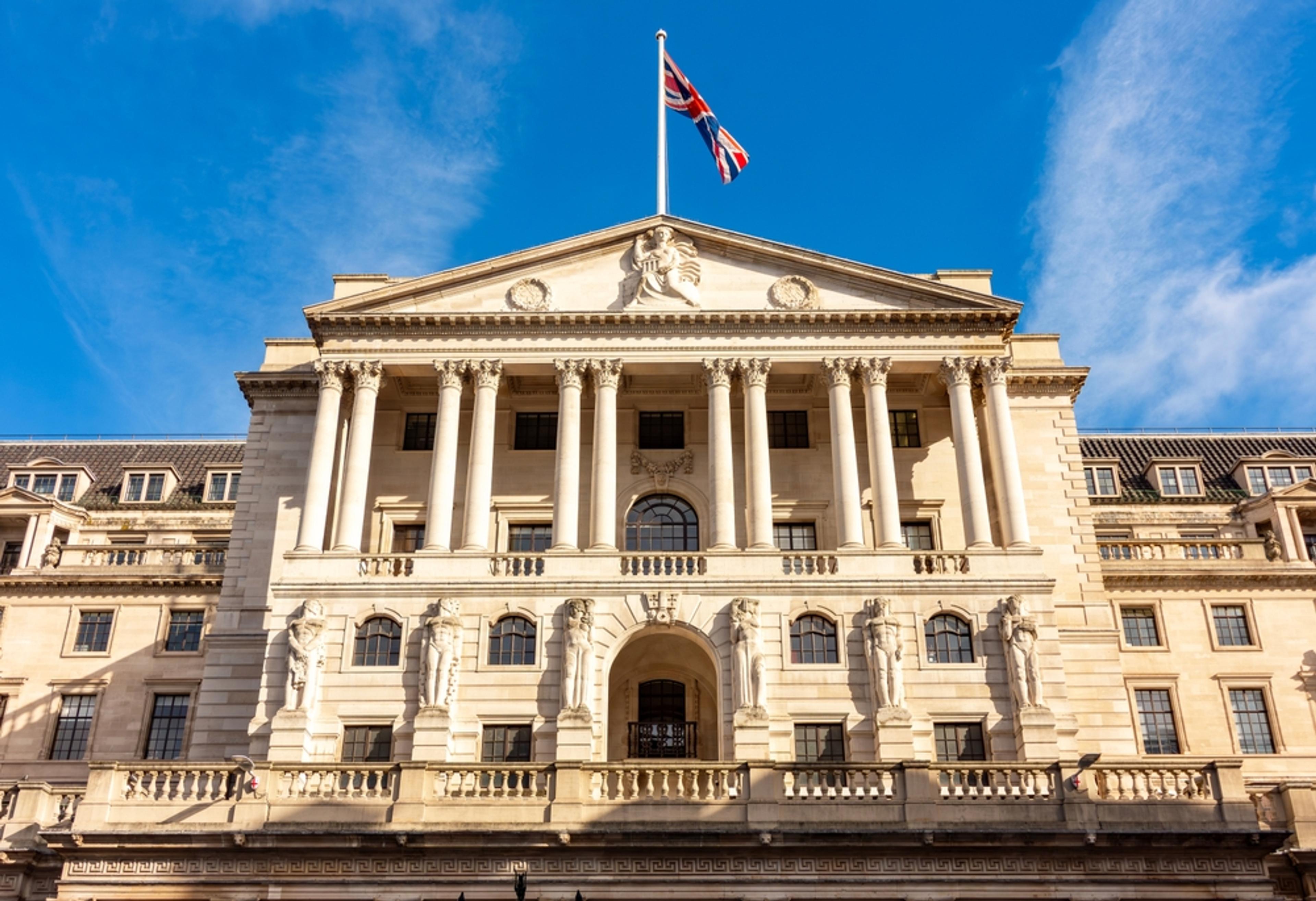
08 Aug 2025
The Bank of England's Balancing Act
Welcome to our weekly newsletter, where we summarise market activity over the past seven days.
Market Weekly

08 Aug 2025
Welcome to our weekly newsletter, where we summarise market activity over the past seven days.
Market Weekly
Market Weekly

This week’s most consequential market development came from Threadneedle Street. On Thursday, the Bank of England (BoE) cut interest rates by 0.25%, breaking from the cautious script followed by many of its global counterparts. The move signals growing urgency among policymakers to address the UK’s deteriorating growth outlook, even as inflation remains stubbornly above target.
The cut lowered the base rate to 4%, marking the fifth reduction in just over a year, and brings interest rates to their lowest point since March 2023. It underscores the BoE’s balancing act: reviving stagnating economic growth without reigniting price pressures. UK inflation remains elevated at over 3.5%, driven by energy costs and persistent wage growth. But behind the scenes, economic momentum is faltering with GDP growth flatlining, consumer sentiment remaining soft, and private investment subdued amidst a backdrop of geopolitical volatility.
This latest move fits into a broader rate cutting trend in the current cycle, here’s how the Bank’s rate path has evolved over the past decade:
Markets responded swiftly. Sterling weakened against the Dollar and Euro, while gilts rallied, with 2-year yields (which move inversely to prices) dropping 0.18% on the day. UK equities rose modestly, led by the real estate and consumer discretionary sectors, which are typically rate-sensitive. Yet the relief rally was tempered by investor concern that the BoE may be “acting too early”, which refers to cutting interest rates before there is clear evidence of inflation durably returning to its 2% target.
The move diverges from the positioning of the Federal Reserve and European Central Bank. While both institutions have struck a more dovish tone recently, the Federal Reserve has refrained from making cuts thus far through 2025, wary of reigniting inflation just as it begins to cool. Meanwhile, the ECB have been steadily cutting rates from highs of 4.5% last year to 2.15% at present, but are now facing uneven inflation across its member states which is making further cuts harder to justify.
BoE Governor Andrew Bailey defended the decision, saying the economy risked slipping into“mild, prolonged stagnation” without looser policy. However, the vote revealed deep internal divisions: the Monetary Policy Committee split 5-4, passed through a rare second-round vote, heeded members warning that the move risks undermining credibility in the bank’s inflation-fighting stance.
For investors, the rate cut means cheaper borrowing but lower returns on savings, as banks adjust lending and deposit rates. Equity markets may benefit in the short term, especially rate-sensitive sectors, though concerns about the UK’s weak growth outlook may temper gains.
The Noise
The Numbers
The Niche
17th-century London coffeehouses, dubbed ‘Penny Universities’, became buzzing hubs for debate and information-sharing. Beyond just coffee, these spots sparked the birth of modern financial markets, as merchants and brokers gathered to trade shares and swap market news, laying the groundwork for today’s stock exchanges.
Disclaimer
Any views expressed are based on information received from a variety of sources which we believe to be reliable, but are not guaranteed as to accuracy or completeness by atomos. Any expressions of opinion are subject to change without notice.
All investment views are presented for information only and are not a personal recommendation to buy or sell. Past performance is not a reliable indicator of future returns, investing involves risk and the value of investments, and the income from them, may fall as well as rise and are not guaranteed. Investors may not get back the original amount invested.
The value of investments and any income from them can fall and you may get back less than you invested.
The value of investments and any income from them can fall and you may get back less than you invested.